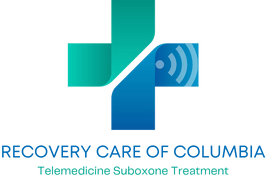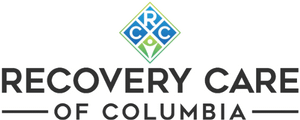Columbia Suboxone Clinic Blog
Dealing with Opioid Addiction: How to Help Someone You Care About
Dealing with opioid addiction—whether it’s your own or someone else’s—is a deeply emotional and complicated experience. When someone you love is addicted to opioids, it can feel like the person you once knew has disappeared. They may act irrationally, distance themselves, or even hurt those closest to them. But it’s not because they don’t care—it’s because the addiction is in control.
If you’re wondering how to support a loved one through opioid addiction, you’re not alone. This article offers a compassionate, practical guide to understanding what’s really happening and how you can help without enabling or losing yourself in the process.
🧠 The Drugs Are Making the Decisions
One of the hardest things to accept is that when someone is in active opioid addiction, they are not entirely themselves. Opioids hijack the brain—specifically the mu-opioid receptors—to block pain, create euphoria, and suppress emotional discomfort. This high can be so powerful that it overrides everything else: responsibilities, relationships, even self-preservation.
“When I was most addicted, I didn’t care about travel, dreams, or goals. I just needed more pills. Everything else in life was just background noise to getting more pills.”
— Drew Bourke, Co-Owner/President at Recovery Care
When opioids wear off, the emotional crash is brutal. Feelings of worthlessness, despair, and panic return, fueling the cycle of addiction. This is why conversations with someone in active addiction can feel so unproductive: you’re not speaking with the person you once knew. You’re speaking with someone under chemical influence.
⚠️ Opioids Aren’t Evil—Misuse Is
Opioids serve a valid purpose in medical settings. They’re often necessary after surgery, injury, or for certain chronic pain conditions. The danger lies in misuse, which can happen gradually and unintentionally.
Why are opioids so addictive?
-
Euphoria: They produce a strong sense of well-being, which can be especially attractive to individuals with trauma, anxiety, or depression.
-
Brain rewiring: Prolonged use alters the brain’s reward system, making it hard to feel pleasure from anything else.
-
Withdrawal avoidance: Once dependence sets in, the fear of withdrawal becomes a powerful motivator to keep using.
❓ Can Anyone Become Addicted to Opioids?
Yes—and some people are more vulnerable than others. Risk factors include:
-
Genetics: A family history of addiction can increase susceptibility.
-
Trauma: Early childhood abuse, neglect, or emotional loss.
-
Mental health conditions: Depression, anxiety, ADHD, or PTSD.
-
Prescription misuse: Taking higher doses or using for longer than prescribed.
Opioid addiction often begins with something as ordinary as a prescription for back pain or wisdom tooth surgery.
❤️ How to Talk to Someone Struggling with Opioid Addiction
Approaching someone about their addiction is not easy. There’s no perfect script—but these principles can guide you:
✅ What to Do:
-
Express love and concern without judgment.
-
Choose a time when they are not under the influence (or are in mild withdrawal, which can increase receptivity).
-
Focus on their potential and future, not past mistakes.
-
Ask if they’re open to help—not if they’re “addicted.”
❌ What to Avoid:
-
Blame, shame, or ultimatums that aren’t enforceable.
-
Trying to “fix” them or micromanage their recovery.
-
Assuming they don’t care—addiction isn’t about a lack of love; it’s about a lack of control.
Recovery starts when the person wants help. Your role is to create space, offer options, and be there when they’re ready.
💊 Medical Help Makes a Difference
Can someone quit opioids on their own? Technically, yes—but for most, the withdrawal is so unbearable that they relapse before they can recover.
A real-world story:
“I was taking 240 mg of oxycodone daily. When I tried to quit cold turkey, I went through 13 straight days of hellish withdrawal. Even after that, I felt like I’d been hit by a truck for weeks. I relapsed just to feel normal again.”
That’s why Medication-Assisted Treatment (MAT)—especially Suboxone—can be life-saving.
Why Suboxone Works:
-
Reduces cravings
-
Blocks withdrawal symptoms
-
Prevents opioid highs
-
Available via telemedicine
-
Covered by TennCare and most commercial insurance
For many, Suboxone is the bridge between active addiction and a stable, functioning life.
💡 How to Support Someone in Recovery
You can’t force someone to recover—but you can help clear the path.
Ways to Help:
-
Encourage professional help: Gently suggest speaking to an addiction doctor or counselor.
-
Find treatment options: Research telemedicine Suboxone clinics like Recovery Care.
-
Offer logistical support: Help with childcare, rides, or filling out intake forms.
-
Attend group meetings with them: Show your solidarity and learn more about recovery.
What to Say:
-
“You’re not alone.”
-
“You’re not a bad person—you’re struggling with something hard.”
-
“I believe you can get better.”
-
“Let me help you find support.”
🧯 In Case of Overdose: Be Prepared
-
Keep naloxone (Narcan) on hand.
-
Learn how to use it.
-
Call 911 immediately if you suspect an overdose.
A single dose of fentanyl—just 2mg—can be fatal. Most heroin is now laced with it, and many counterfeit pills on the street contain deadly amounts.
🧭 Boundaries, Self-Care, and Your Role
It’s okay to protect yourself emotionally. Loving someone in addiction doesn’t mean tolerating harm or chaos in your life.
-
Set clear boundaries (e.g., no drugs in the house).
-
Seek support from a therapist or family group like Al-Anon.
-
Remember: You can support someone without sacrificing yourself.
📱 Help Is Available – Register for Treatment
- If they have TennCare health insurance:
TennCare Addiction Treatment - If they have commercial health insurance:
Commercial Insurance Addiction Treatment - If they do not have health insurance:
Self-Pay Addiction Treatment
Considering an Intervention for someone who’s addicted to opioids?



